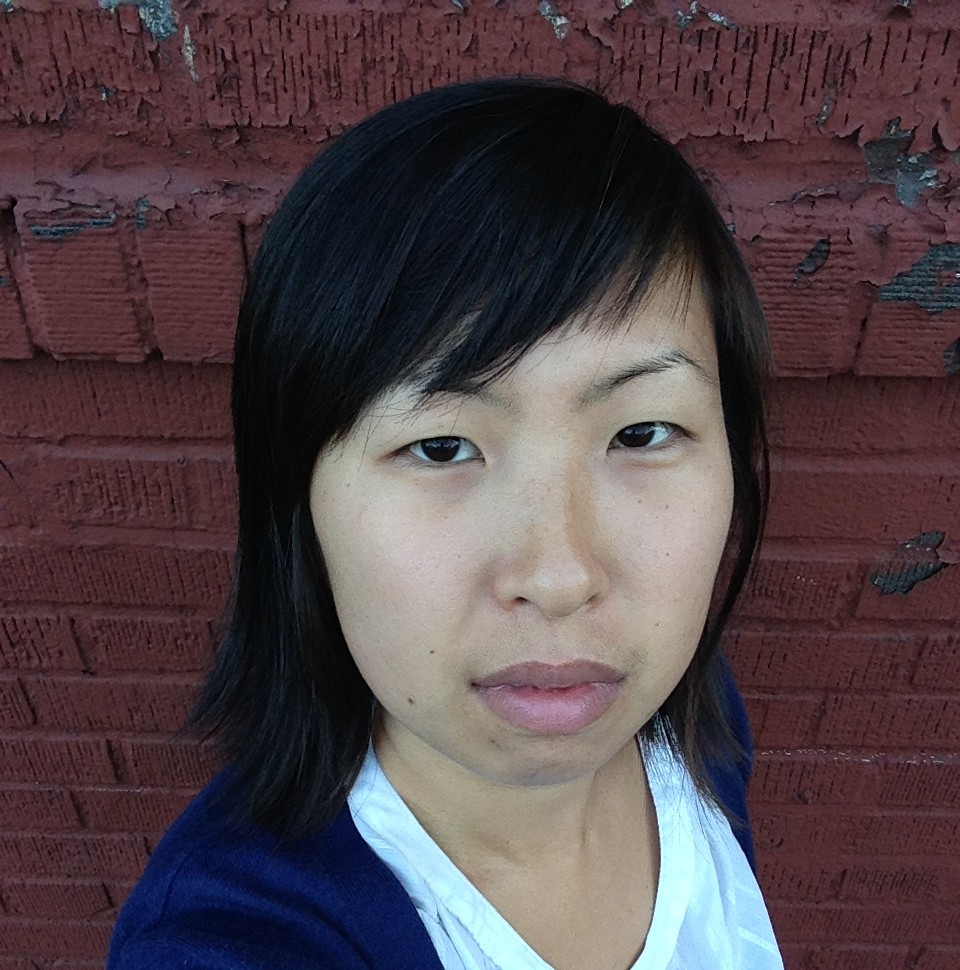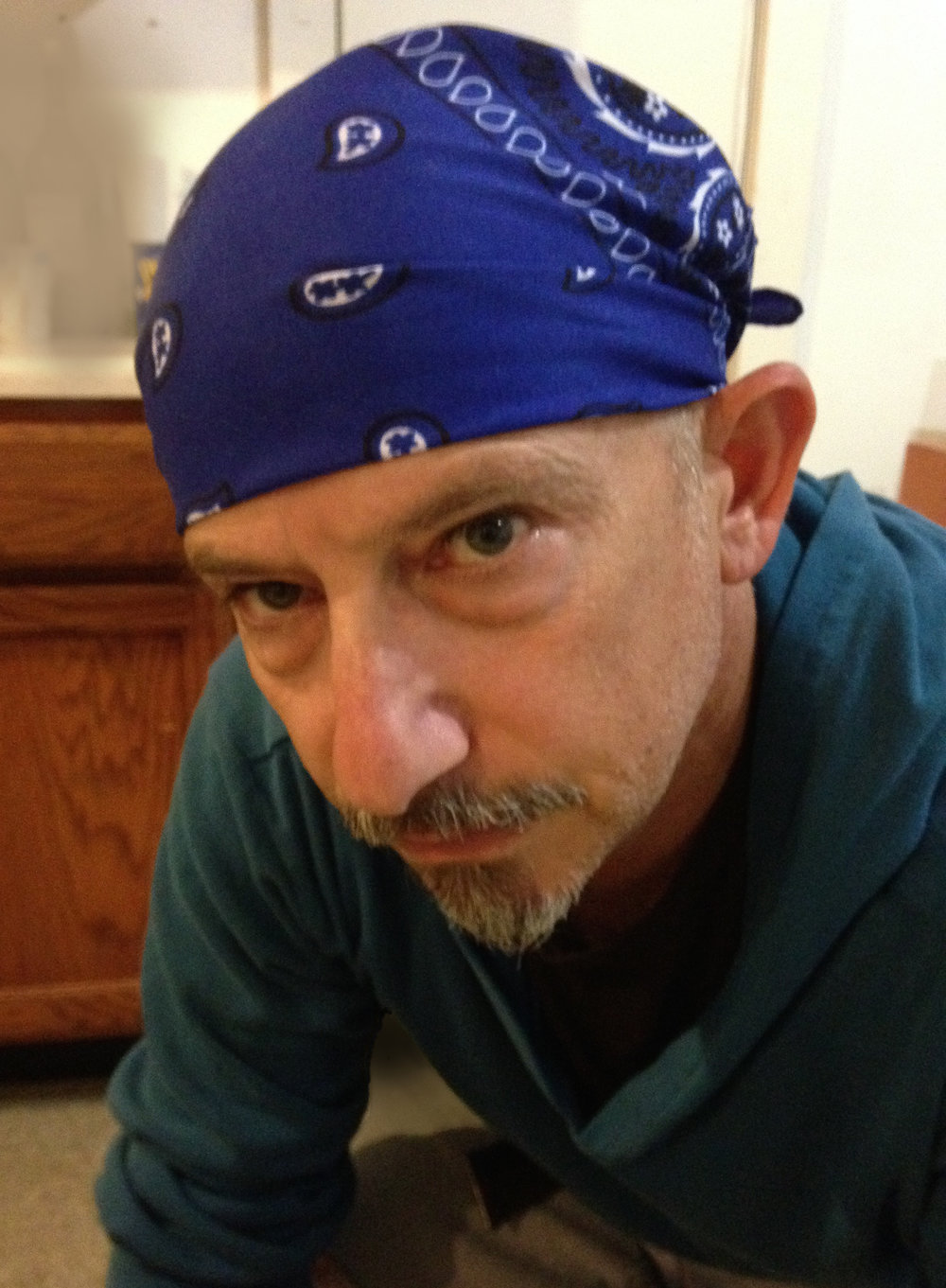 Madeline ffitch was a founding member of the punk theater company The Missoula Oblongata. Her stories have appeared in The Chicago Review, Vol. 1 Brooklyn, and Tin House. Her first collection will be out in February on Publishing Genius Press. She lives and writes in Appalachian Ohio where she homesteads and raises ducks, goats, and her small son, Nector.
Madeline ffitch was a founding member of the punk theater company The Missoula Oblongata. Her stories have appeared in The Chicago Review, Vol. 1 Brooklyn, and Tin House. Her first collection will be out in February on Publishing Genius Press. She lives and writes in Appalachian Ohio where she homesteads and raises ducks, goats, and her small son, Nector.
Her story, "The Private Fight," appeared in Issue Sixty-Two of The Collagist.
Here, Madeline ffitch talks to interviewer Thomas Calder about family, race and history.
What initial idea led to this story’s creation?
One of the things that was happening around the time I began the story was that my uncle Kurt Vance, a tremendously significant loved figure in my life, an artist and meticulous thing-maker was dying of cancer. I was living very far away from him and encountering a lot of new ideas. He had been an intellectual mentor to me. When I encountered something I’d never heard of, a school of philosophy, a visual arts movement, some piece of history, I realized that I automatically would think of asking him to fill me in on it, on running any new idea by him, just to hear his take on it. And then I realized that I had no way to understand myself and my own mind without him to ricochet ideas off of, that I had no plan for how to continue my intellectual life once I couldn’t talk things over with him anymore. So I started writing from that place. When he was in the hospital a lot of people who loved him sent him messages and pieces of writing, and I sent a draft of the story for him to read, and he died not long after, and my aunt read it to him, and though it may be selfish, I’m glad to know he heard it. Some people say that their families hold them back from writing, but so much of what we understand about love and sadness and what matters, maybe everything, comes from being part of a family, and that’s always going to be difficult, so why not fight for your place in it with these people you love, especially the older people. Remember that they’ve been around the block. They can handle it. They probably understand your mind better than you think they do.
Time is a major issue in this piece. Historical events are both far and near to these characters. Could you talk more about both your approach in addressing this topic, as well as your own interest in the matter?
I had a teacher once, a white guy, who, when asked why he knew so much about the murder of Fred Hampton (the young black panther leader killed by police officers in Chicago in 1969) said, “I’m an American. Of course I’m interested.” And I think that’s part of it. I don’t understand why it seems natural that contemporary American fiction, or fiction written by young people, should not show an awareness of history, or that if it does, it must be done in a self-conscious way or done with capital letters. If you know your neighbors or your family members or anyone besides yourself and other people your own age, you are hearing about and talking about history, and understanding yourself in a political and historical context, and there’s nothing broad or grand about that. It’s just true. But also, I am interested in the way we don’t understand history, or the way that we have heard it retold in these talismanic stories from people we love or are close to, people with a limited and flawed perspective. It helps us understand and misunderstand each other, and I think that’s a vital place for storytelling. For example, as a young white writer, I don’t think there’s any way that I can “get it right” when writing about the black panther party, but I also think it’s worthwhile to acknowledge and normalize the wild fact that history doesn’t compartmentalize. Right? Black history affects white people and black people for sure know that white history affects them. And the ways that we understand and misunderstand each others’ history has real effects on our lives. This understanding and misunderstandings of history are vital places to begin stories from.
I also think that white writers want to leave race alone unless they feel they have something wise to say about it. But that’s such a problem because most white people, most people, surely most writers, aren’t particularly wise about race, yet the history of race relations in America permeates our personal family and regional histories. So when white writers think they can just opt out so that they don’t get it wrong, I think it creates a sort of falseness in contemporary fiction, where white writers don’t notice race or history unless the story is about those topics in capital letters. This ends up colluding with the false idea of a “postracial” society or an apolitical society. It’s really false, but in fiction, it’s also aesthetically false. And it’s boring and safe. So I’m interested in making a mess, getting some things wrong, representing the ways that we misunderstand each other, showing perhaps a foolish but sincere perspective, mostly continuing to write as if history and race matter and are present in the American human experience still because they most certainly do and are.
There are so many heartbreaking lines in this story, whether it be Murray Rose’s notion of diplomacy or Maxwell Conley’s view of love. I experienced a deep sadness while reading this—but that sort of good deep sadness that reminds a reader they’re alive. What was it like living with and creating these characters?
A friend once talked about making post-apocalyptic art, meaning art that will hold up around a fire or in a gutted building the same way it could hold up in a more refined context. I am interested in making stories that acknowledge vitality, that reject the cultural paradigm of the modern malaise. I believe there are other true stories to be told than stories of disconnection, isolations, jadedness, and boredom. I want to confront the assumption that disconnection is what we have to write about, and the only other option is to have a story where people are stupidly “happy” or something. I don’t think that deep sadness comes from being disconnected. I think it comes from being connected. And what seems more true to me is how connected people are, how relentlessly involved and passionate people are. That’s why we can’t get away from each other, and that’s what we love and what we hate, and that’s what’s so difficult, and that’s what breaks our hearts.
I’m curious to hear more about your life as a homesteader in Appalachian, Ohio. What’s your schedule like, as far as writing, homesteading and a raising a young son goes?
Many people fear that having a life outside of writing will make them be less productive writers. I’m not sure if that’s true, but I know that it would be extremely convenient for me to blame my son, my goats, my ducks, my garden, or the maple trees when I don’t getting writing done. I feel I could only do that if I could honestly say to myself that in all the years before I lived this way I actually used every available moment to write at my maximum productivity. And I certainly didn’t. I’m not very sympathetic to those who complain about how hard it is to get the work done. For me, it’s mind over matter. When the blank page threatens, I remember that as a woman writer, my forerunners are people who got the work done no matter what. Ursula LeGuin did it after her kids were in bed, Grace Paley did it and was an amazing activist, very available to her community, Mourning Dove wrote in a tent after a long day of picking fruit. One of my favorite writers is Louise Erdrich and I just read her account of how much reading she got done while breastfeeding. When the goat is milked, and Nector is sleeping, and there’s a bit of electricity, I figure I have an hour or so, and I open up the word processor and write as much as I can. My partner is building us a house right now, actually as we speak, so I do a lot of writing in a small shack that we use as a kitchen, or another shack that we built above our workshop. Both have woodstoves.
I like working outside. I like working with my hands. I like knowing how to build things and make things. I think it’s necessary to be available to your community, to choose some activism to be involved in, to get a little embarrassed with rhetoric. I like to read wild and stylish stuff, quiet slow stuff, but also to read pamphlets, and wing nut confessional letters in all capitals. Maintaining my place in a life that includes writers, artists, farmers, activists, conspiracy theorists, parents, children, goats, and grandparents overall only helps my writing and my intellectual life. Or wait- that makes it sound way too designed. Actually, it’s just the way my life has to be, and I couldn’t imagine it any other way. Also, I should mention that recently, I became a doctoral student at Ohio University, which is in Athens, the nearest town, and that has helped me to find balance and not become, as my urban friends feared, a zombie hippie wife. It has also helped me earn a regular paycheck for the first time in a few years, which is good when you are starting a family.
I know your collection Valparaiso, Round the Horn is forthcoming from Publishing Genius Press. Congrats! Are you currently working on anything new, or are you taking a breather?
Thank you! I feel so great about working with PGP. Adam Robinson is so true blue and all-in. His project is so fearless, so joyously confrontational to drudgery and to old ruts. He just mailed me a big stack of PGP books, and I’m so honored to be in the company of those other PGP writers, a pushy and wild and elegant bunch. I’m hoping to put out a collection of plays—I’m still collaborating on one with my brother, it’s about snake bites—and I’m working on a novel too. I think I might not get to take breathers anymore. Best to just keep writing because the breathers are already built in with the ducks, the goats, the garden, and the baby.
Who are you currently reading?
I am always re-reading Grace Paley, and Mary Ruefle’s book Madness, Rack, and Honey, which my friend, the poet Heather Christle gave me a couple years ago. I still feel kind of like I stole her book because I was looking at it so hungrily I think she felt like she had to give it to me. But then, the poets are always schooling me. I read Gertrude Stein for the first time this fall, and can’t believe it was for the first time, it felt so reasonable and familiar. I’m also reading Charles Johnson’s book Middle Passage. And of course, I am very often reading the classic, The Little Fur Family, which is a work of genius. I have two editions, both with fur covers. I think I like it more than Nector does.









